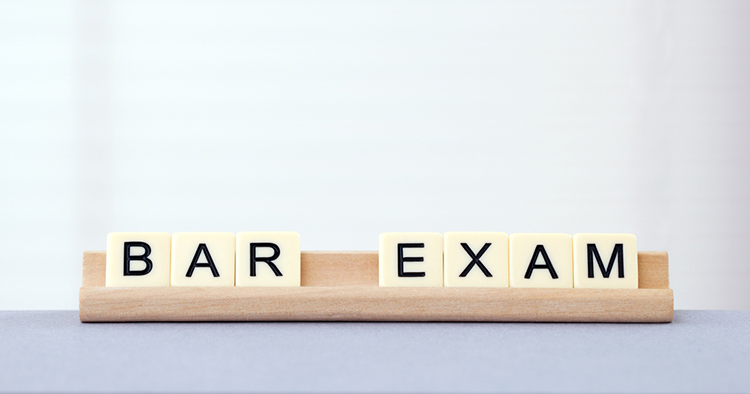ABA legal ed council sends bar-passage standard back to House of Delegates

Ahlapot / Shutterstock.com
Paperwork for the ABA’s House of Delegates to again consider a proposed revision of the bar passage standard for law school accreditation has been submitted, said Barry Currier, director of accreditation and legal education, on Friday at a council meeting for the Section of Legal Education and Admissions to the Bar.
The council would like the delegates to reconsider the proposed revision at the January 2019 Midyear Meeting. Rejected by the House in 2017, the proposal calls for a bar passage rate of at least 75 percent within two years. Language for the proposed revision remains unchanged, Currier said.
There are various ways to meet the standard’s current requirements, and it’s been reported that no law school has ever been out of compliance with it.
During the council’s Friday open session in Atlanta, Currier said some things have changed in legal education since the proposal was first submitted to the House. More jurisdictions are now using the uniform bar exam, according to him, and several jurisdictions have lowered bar exam cut scores.
A council memo addressing diversity concerns about the proposed revision, as well as what it would mean for law schools in California, where the cut score of 144 is the nation’s second highest, is posted on the section’s website.
In addition to Standard 316, the council briefly addressed in open session a standards review committee memo about potential revisions it may want to consider. A motion passed to have further discussion about that sometime next year.
Included in the memo is a suggestion that the council consider allowing further review of an accreditation compliance decision beyond what is covered in the appeals process. Under the current rules, a law school can take a council decision to an appeals panel whose members are appointed annually by the council chair. Following a hearing, the panel has the authority to affirm, reverse or amend the decision, or remand the decision to the council for further consideration.
The memo also suggests reviewing teach-out rules for ways the process could be made easier for law schools that are closing and to consider adding a rule where law schools that sue the council or the ABA regarding accreditation matters are responsible for attorney fees if the lawsuits are unsuccessful.
In the past year, four law schools sued the ABA after public notice was made about the schools being out of compliance with accreditation standards. One, filed by Western Michigan University Thomas M. Cooley Law School, settled in October, and the other three, filed in May by for-profit InfiLaw schools, remain open.



